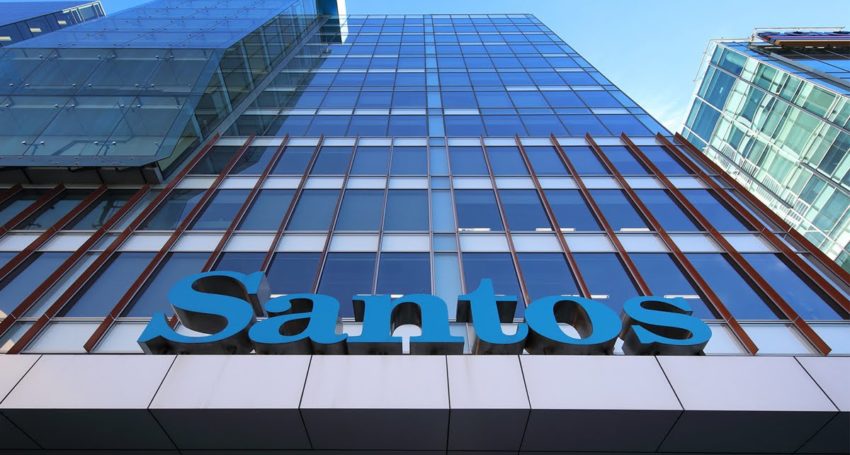Santos breaks South Australian drought to join blue-chip stock market index
Business
Santos will this month officially become the first South Australian headquartered company in decades to join the top echelon of the Australian Securities Exchange, on the back of surging gas prices and its recent merger with Oil Search.

Sign up to receive notifications about new stories in this category.
Thank you for subscribing to story notifications.

The Adelaide-based oil and gas company was listed by ratings agency Standard & Poor’s in the S&P/ASX20 for the first time, with its market capitalisation of $28 billion the 16th highest among Australian listed companies.
The listing, which takes effect from March 21, coincides with a spike in the world oil price as a result of the war in Ukraine that has contributed to a 20 per cent rise in Santos’s share price over the past fortnight to $8.17 yesterday.
It also follows the finalisation of a merger between Santos and Oil Search in December that gave the combined company an opening value of about $22 billion.
Baker Young managed portfolio analyst Toby Grimm said it was the first time a South Australian firm had been in the top 20 list of Australian public companies in his more than two decades with the Adelaide-based stockbroking business.
He said being in a particular index can open the door to a whole lot of institutional investment money that may not have otherwise been available.
“Without a doubt it is definitely a hallmark of what would be perceived as the largest and highest quality companies in Australia that is determined by an independent referee – Standard and Poors – so it does that credibility to the company and it is certainly a feather in Santos’s cap,” Grimm said.
“Being in the top 20 could put it on the radar for international fund managers looking for the biggest companies and the most liquid but as far as Australia goes, the ASX200 and 100 are probably more influential for mandate-based participation.”
Despite the recent price rises from historic lows in the early part of the coronavirus pandemic, which helped Santos to $920 million profit in 2021, Grimm said oil and gas companies faced challenges going forward as more investors moved away from traditional energy stocks.
“We would argue that Santos and indeed its peers within the energy sector have underperformed for several years as institutional investors have shunned oil and gas producers for ESG reasons,” he said.
“The recent invasion of Ukraine by Russia has brought about a sudden concern around energy shortages in the Northern Hemisphere, particularly Europe but being a global market we have seen a huge jump in crude oil, natural gas prices, LNG prices and everything Santos produces and importantly in the benchmarks that they price off of.
“So they now have some very strong earnings tailwinds but from an investor perspective there has been a swing away from them and that has definitely affected their performance, certainly prior to this latest conflict that has brought about a rally in not just Santos but also Woodside and the entire sector.”
Mining giant BHP heads the ASX20 with a market capitalisation of more than $250 billion.
Four of the next five places on the index are taken by the ‘big four’ banks CBA, NAB, Westpac and ANZ.
James Hardie Industries also entered the ASX20 while Brambles and Block Inc dropped out.
On the other indices, SA-based company Core Lithium joined the ASX300 while prospective graphite producer Renascor Resources was included in the All Ordinaries, a list of the top 500 ASX firms.
Both companies have experienced exponential increases in their share price in the past 18 months as they attempt to transition from explorers to producers of battery materials for electric cars.
SkyCity Entertainment Group, which operates the Adelaide Casino dropped out of the ASX200 on the back of some poor results for the last six months of 2021.
Grimm said the New Zealand-based company’s fall from the benchmark ASX200 index was reflective of those industries hit hardest by COVID – hospitality and tourism.
He said the casino sector had also faced regulatory scrutiny of late following issues surrounding Crown and the Star Entertainment Group.
“There are concerns that could promote even greater regulatory requirements that could potentially curtail revenues and certainly increase expenses, putting pressure on profit margins going forward,” Grimm said.
“Falling out of the 200 is probably a negative because it would cost you some funds that can only invest in that index but the reasons are pretty obvious and not necessarily SkyCity’s own doing.”
Jump to next article



